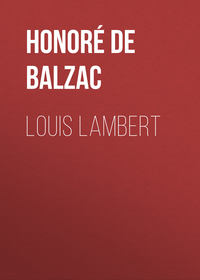
Louis Lambert
This was not all. There is a perpetual struggle going on between the masters and the boys, a struggle without truce, to be compared with nothing else in the social world, unless it be the resistance of the opposition to the ministry in a representative government. But journalists and opposition speakers are probably less prompt to take advantage of a weak point, less extreme in resenting an injury, and less merciless in their mockery than boys are in regard to those who rule over them. It is a task to put angels out of patience. An unhappy class-master must then not be too severely blamed, ill-paid as he is, and consequently not too competent, if he is occasionally unjust or out of temper. Perpetually watched by a hundred mocking eyes, and surrounded with snares, he sometimes revenges himself for his own blunders on the boys who are only too ready to detect them.
Unless for serious misdemeanors, for which there were other forms of punishment, the strap was regarded at Vendome as the ultima ratio Patrum. Exercises forgotten, lessons ill learned, common ill behavior were sufficiently punished by an imposition, but offended dignity spoke in the master through the strap. Of all the physical torments to which we were exposed, certainly the most acute was that inflicted by this leathern instrument, about two fingers wide, applied to our poor little hands with all the strength and all the fury of the administrator. To endure this classical form of correction, the victim knelt in the middle of the room. He had to leave his form and go to kneel down near the master's desk under the curious and generally merciless eyes of his fellows. To sensitive natures these preliminaries were an introductory torture, like the journey from the Palais de Justice to the Place de Greve which the condemned used to make to the scaffold.
Some boys cried out and shed bitter tears before or after the application of the strap; others accepted the infliction with stoic calm; it was a question of nature; but few could control an expression of anguish in anticipation.
Louis Lambert was constantly enduring the strap, and owed it to a peculiarity of his physiognomy of which he was for a long time quite unconscious. Whenever he was suddenly roused from a fit of abstraction by the master's cry, "You are doing nothing!" it often happened that, without knowing it, he flashed at his teacher a look full of fierce contempt, and charged with thought, as a Leyden jar is charged with electricity. This look, no doubt, discomfited the master, who, indignant at this unspoken retort, wished to cure his scholar of that thunderous flash.
The first time the Father took offence at this ray of scorn, which struck him like a lightning-flash, he made this speech, as I well remember:
"If you look at me again in that way, Lambert, you will get the strap."
At these words every nose was in the air, every eye looked alternately at the master and at Louis. The observation was so utterly foolish, that the boy again looked at the Father, overwhelming him with another flash. From this arose a standing feud between Lambert and his master, resulting in a certain amount of "strap." Thus did he first discover the power of his eye.
The hapless poet, so full of nerves, as sensitive as a woman, under the sway of chronic melancholy, and as sick with genius as a girl with love that she pines for, knowing nothing of it; – this boy, at once so powerful and so weak, transplanted by "Corinne" from the country he loved, to be squeezed in the mould of a collegiate routine to which every spirit and every body must yield, whatever their range or temperament, accepting its rule and its uniform as gold is crushed into round coin under the press; Louis Lambert suffered in every spot where pain can touch the soul or the flesh. Stuck on a form, restricted to the acreage of his desk, a victim of the strap and to a sickly frame, tortured in every sense, environed by distress – everything compelled him to give his body up to the myriad tyrannies of school life; and, like the martyrs who smiled in the midst of suffering, he took refuge in heaven, which lay open to his mind. Perhaps this life of purely inward emotions helped him to see something of the mysteries he so entirely believed in!
Our independence, our illicit amusements, our apparent waste of time, our persistent indifference, our frequent punishments and aversion for our exercises and impositions, earned us a reputation, which no one cared to controvert, for being an idle and incorrigible pair. Our masters treated us with contempt, and we fell into utter disgrace with our companions, from whom we concealed our secret studies for fear of being laughed at. This hard judgment, which was injustice in the masters, was but natural in our schoolfellows. We could neither play ball, nor run races, nor walk on stilts. On exceptional holidays, when amnesty was proclaimed and we got a few hours of freedom, we shared in none of the popular diversions of the school. Aliens from the pleasures enjoyed by the others, we were outcasts, sitting forlorn under a tree in the playing-ground. The Poet-and-Pythagoras formed an exception and led a life apart from the life of the rest.
Конец ознакомительного фрагмента.
Текст предоставлен ООО «ЛитРес».
Прочитайте эту книгу целиком, купив полную легальную версию на ЛитРес.
Безопасно оплатить книгу можно банковской картой Visa, MasterCard, Maestro, со счета мобильного телефона, с платежного терминала, в салоне МТС или Связной, через PayPal, WebMoney, Яндекс.Деньги, QIWI Кошелек, бонусными картами или другим удобным Вам способом.
Вы ознакомились с фрагментом книги.
Для бесплатного чтения открыта только часть текста.
Приобретайте полный текст книги у нашего партнера:
Полная версия книги
